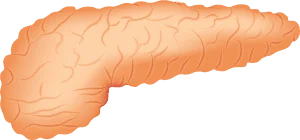Featured Products
Explore Products
- In-Stock Tumor Cell Lines
- Human Orbital Fibroblasts
- Human Microglia
- Human Pulmonary Alveolar Epithelial Cells
- Human Colonic Fibroblasts
- Human Type II Alveolar Epithelial Cells
- Human Valvular Interstitial Cells
- Human Thyroid Epithelial Cells
- C57BL/6 Mouse Dermal Fibroblasts
- Human Alveolar Macrophages
- Human Dermal Fibroblasts, Adult
- Human Lung Fibroblasts, Adult
- Human Retinal Muller Cells
- Human Articular Chondrocytes
- Human Retinal Pigment Epithelial Cells
- Human Pancreatic Islets of Langerhans Cells
- Human Kidney Podocyte Cells
- Human Renal Proximal Tubule Cells



 MIA PaCa-2 is a human pancreatic tumor cell line originally derived from the pancreas of a 65-year-old Caucasian male patient with pancreatic ductal adenocarcinoma (PDAC). The cells exhibit epithelial-like morphology and semi-adherent growth characteristics, typically forming loosely attached clusters. The karyotype of MIA PaCa-2 shows hypotriploid, with a 61 of model chromosome number (PMID: 832918). MIA PaCa-2 contain abundant cytoplasm and are known to be sensitive to L-asparaginase treatment. As a tumorigenic cell line, MIA PaCa-2 readily forms tumors when subcutaneously implanted into immunodeficient (nude) mice, making it suitable for in vivo cancer studies.
MIA PaCa-2 is a human pancreatic tumor cell line originally derived from the pancreas of a 65-year-old Caucasian male patient with pancreatic ductal adenocarcinoma (PDAC). The cells exhibit epithelial-like morphology and semi-adherent growth characteristics, typically forming loosely attached clusters. The karyotype of MIA PaCa-2 shows hypotriploid, with a 61 of model chromosome number (PMID: 832918). MIA PaCa-2 contain abundant cytoplasm and are known to be sensitive to L-asparaginase treatment. As a tumorigenic cell line, MIA PaCa-2 readily forms tumors when subcutaneously implanted into immunodeficient (nude) mice, making it suitable for in vivo cancer studies.